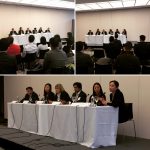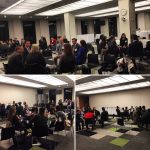Survivor Reentry Project
With the support of the Office for Victims of Crime at the Department of Justice, the ABA Commission on Domestic & Sexual Violence has launched the Survivor Reentry Project (SRP). SRP provides national training and technical assistance for attorneys working with survivors of human trafficking who have been convicted of a crime as a result of their victimization.
Many trafficking survivors are arrested and prosecuted for acts directly related to having been trafficked. Survivors are denied employment, housing, and economic assistance due to their criminal histories. Criminal records are used against survivors in family court proceedings involving their children, and can prevent foreign born survivors from attaining lawful immigration status.
Encouragingly, many states have passed vacatur laws allowing survivors relief. These vacatur laws allow survivors to petition to have their records cleared if they can show that their crimes arose from their victimization. Most survivors do not know they are potentially eligible for vacatur, and the legal community has not developed the capacity to handle these cases in large numbers.
SRP seeks to raise awareness of vacatur remedies for survivors, and build sustainable vacatur practices across the country. The project offers national training and technical assistance on vacatur remedies for public defenders, legal services lawyers, pro bono attorneys, law students, judges and prosecutors.
Click on the link in the title for more information.
AAARI.info – Asian/Asian American Research Institute
AAARI.info – Asian/Asian American Research Institute
CUNY Conference on Resurgent Realities: East Coast Asian American Studies, An East Coast Symposium & Initiative
Date & Time: Friday, May 13; 9:00 AM – 4:30 PM
Location: CUNY Graduate Center, 365 Fifth Avenue, Concourse Level, Manhattan
Why “resurgent realities”? What exactly are the realities for Asian American communities and AA Studies today? Why East Coast Asian American Studies? And what are the new realities of Asian Pacific communities including anti-Asian, anti-immigrant and anti-Muslim movements; conflicts within our own communities over new “tiger Mom” models; and class and economic struggles juxtaposed against gender and religious beliefs? What new models for AA Studies can the East Coast offer?
Click on the link in the title for more information.
CLICK HERE to RSVP




